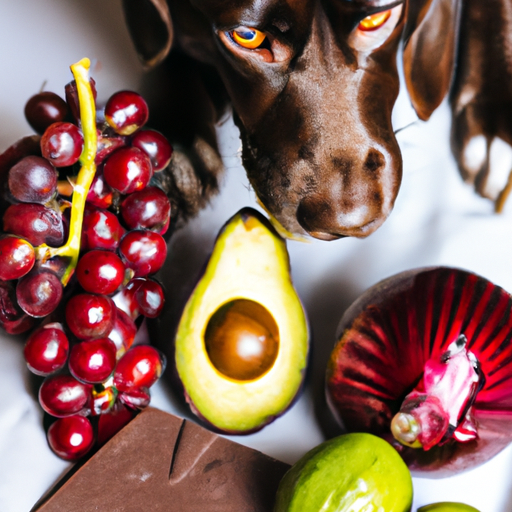As a caregiver, it’s your responsibility to ensure the health and wellbeing of your pets. Part of that involves knowing what foods are safe for your dog and which ones are not. It may surprise you that some foods that are perfectly healthy for humans can be extremely dangerous for dogs. Let’s take a detailed look at 8 categories of food that you should avoid feeding your dog.
1. Chocolate and Caffeine
Both chocolate and caffeine contain substances called methylxanthines, which are found in cacao seeds, the fruit of the plant used to make coffee, and in the nuts of an extract used in some sodas.
When ingested by dogs, methylxanthines can cause:
- vomiting
- diarrhea
- panting
- excessive thirst and urination
- abnormal heart rhythm
- tremors
- seizures
- in severe cases, they can even cause death
2. Alcohol
Alcohol and foods containing alcohol can cause:
- vomiting
- diarrhea
- decreased coordination
- central nervous system depression
- difficulty breathing
- tremors
- abnormal blood acidity
- coma
- death
Even small amounts of alcohol can be toxic to dogs.
3. Grapes and Raisins
The specific toxin in grapes and raisins is unknown, but these fruits can cause kidney failure in dogs. Symptoms might include:
- vomiting
- lethargy
- depression
- dehydration
- decreased appetite
4. Xylitol
Xylitol is a sweetener used in many products, including gum, candy, baked goods, and diet foods. In dogs, xylitol can lead to insulin release, which can lead to liver failure. The increase in insulin leads to hypoglycemia (lowered sugar levels).
Symptoms can include:
- vomiting
- loss of coordination
- seizures
- in severe cases, it can even cause liver failure
5. Onions and Garlic
Onions and garlic can cause gastrointestinal irritation and could lead to red blood cell damage and anemia. Although cats are more susceptible, dogs are also at risk if a large enough amount is consumed.
6. Dairy Products
While not immediately toxic, dairy products can cause digestive issues in dogs due to their inability to break down lactose. Symptoms can include:
- diarrhea
- gas
- abdominal discomfort
7. Bones and Fat Trimmings
Bones can splinter and cause blockages or tears in your dog’s digestive system. Fat trimmings can lead to pancreatitis in dogs.
8. Raw Meat and Eggs
Raw meat and raw eggs can contain bacteria such as Salmonella and E. coli that can be harmful to pets. In addition, raw eggs contain an enzyme called avidin that decreases the absorption of biotin (a B vitamin), which can lead to skin and coat problems.
| Food | Symptoms |
|---|---|
| Chocolate, Coffee, Caffeine | Vomiting, diarrhea, panting, excessive thirst and urination, abnormal heart rhythm, tremors, seizures, death |
| Alcohol | Vomiting, diarrhea, decreased coordination, central nervous system depression, difficulty breathing, tremors, abnormal blood acidity, coma, death |
| Grapes, Raisins | Vomiting, lethargy, depression, dehydration, decreased appetite |
| Xylitol | Vomiting, loss of coordination, seizures, liver failure |
| Onions, Garlic | Gastrointestinal irritation, red blood cell damage |
| Dairy Products | Diarrhea, gas, abdominal discomfort |
| Bones, Fat Trimmings | Blockages or tears in the digestive system, pancreatitis |
| Raw Meat, Eggs | Salmonella, E. coli, skin and coat problems |
Frequently Asked Questions
1. Can my dog eat any type of chocolate?
No, all kinds of chocolate are dangerous for dogs. The dark chocolate and unsweetened baking chocolate are especially toxic.
2. Can my dog eat anything with xylitol in it?
No, xylitol is extremely toxic to dogs. Always check the label if you’re unsure.
3. Are all bones dangerous for dogs?
Not all bones are dangerous, but bones from the kitchen can splinter and cause blockages or tears in your dog’s digestive system.
4. Can I give my dog dairy in small amounts?
Some dogs can tolerate small amounts of dairy, but many will experience digestive upset such as diarrhea and gas.
Remember, as a caregiver, it’s your responsibility to ensure your pet’s safety. When in doubt, consult with your veterinarian before giving your dog any new food. Your furry friend is depending on you to make the best choices for their health.



